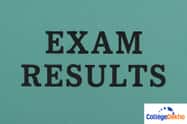- GATE Economics Syllabus 2026 PDF Download
- GATE 2026 Economics (XH - C1) Syllabus & Important Topics
- GATE 2026 Economics Core Concepts
- GATE 2026 Economics Exam Pattern
- Sample Question Papers for GATE Economics Paper
- GATE Economics Paper Exam Pattern and Marking Scheme 2026
- Best Books for GATE Economics 2026
- GATE 2026 Economics Four Months Preparation Plan
- Faqs

GATE 2026 Economics Syllabus: IIT Guwahati has officially released the GATE 2026 Economics syllabus on its website. If you are planning to appear for the exam under the GATE XH-C1 paper, you will study key subjects like Microeconomics, Macroeconomics, Statistics, Econometrics, Mathematical Economics, International Economics, Public Economics, Development Economics, and Indian Economics. Each subject covers several detailed subtopics that you must understand thoroughly to score well. The GATE 2026 exam is scheduled for February 7, 8, 14, and 15, 2026. Last year, about 3,000 candidates appeared for the Economics paper, making it one of the more specialised subjects among all GATE disciplines. To prepare effectively, you should follow the latest syllabus, refer to reputed books, and solve previous question papers. This guide provides complete details on the updated syllabus, exam pattern, and preparation resources for GATE 2026 Economics.
Also read:
GATE Economics Syllabus 2026 PDF Download
IIT Guwahati has released the paper-wise GATE 2026 syllabus. You can check the GATE 2026 Economics syllabus PDF from the link provided below:
GATE 2026 Economics (XH - C1) Syllabus & Important Topics
Before you move towards the preparation strategy, you must get acquainted with the GATE Economics Syllabus. The GATE Economics syllabus 2026 comprises a total of seven topics, which then further include different numbers of subtopics.
S.No. | Sections | Sub Topics | Important Topics |
|---|---|---|---|
1 | Microeconomics |
|
|
2 | Macroeconomics |
|
|
3 | Statistics, Econometrics and Mathematical Economics |
|
|
4 | International Economics |
|
|
5 | Public Economics |
|
|
6 | Development Economics |
|
|
7 | Indian Economy |
|
|
GATE 2026 Economics Core Concepts
In the GATE Economics paper, the student's ability to understand and interpret written information, which is important to research in the humanities and social sciences, is tested. The segment will not test language skills specifically in terms of grammar, vocabulary, etc. Rather, the examination focuses on critical thinking and analysis of the text and its rhetorical and stylistic structure. The GATE economics questions will test the student’s skills in the following areas:-
- Reading Comprehension: The ability to understand and answer complex language questions.
- Expression: The questions about stylistic and rhetorical aspects of a short passage that corrects or modifies specific sentences.
- Analytical reasoning: The ability to understand relationships and draw reasonable conclusions from the statements.
- Logical reasoning: Critically thinking to evaluate or predict an argument, identify the principal and back up arguments, predict results, etc.
GATE 2026 Economics Exam Pattern
Before going into full-fledged exam preparations, you must be aware of the GATE 2026 Economics exam pattern. The GATE Economics paper pattern will help you gain an understanding of the pattern of the question paper, the number of sections, and the number of questions to be asked in the GATE 2026 exam pattern. We have explained the GATE Economics exam pattern in detail below:
Particulars | Details |
|---|---|
Duration | 3 hours |
Mode | Online (Computer-Based Test) |
Medium | English |
Number of Sections | Two:
|
Number of Questions | 65 |
Types of Questions |
|
Negative Marking |
|
Sample Question Papers for GATE Economics Paper
Preparing for an entrance exam with the help of some constructive preparatory methods always involves solving GATE sample papers or a question paper from the previous year. Since the GATE 2026 Economics paper was introduced last year, an attempt to solve a good number of sample questions will help students estimate their preparation before the exam date. To access the GATE Economics Paper Sample Questions, you need to click on the link below.
GATE Economics Paper Exam Pattern and Marking Scheme 2026
If you are willing to appear on the GATE Economics paper, you must be aware of the GATE Economics paper pattern and marking scheme. Below is the detailed GATE 2026 exam pattern and marking scheme followed for the GATE Economics paper-
Name of the Section | Number of Questions | Question Type | Mark Distribution (Total Marks- 60) |
|---|---|---|---|
Reading Comprehension General Aptitude | 14 | MCQ (Multiple Choice Questions) | 14 questions x 1 marks = 14 marks |
Expression | 10 | MCQ (Multiple Choice Questions) | 10 questions x 2 marks = 20 marks |
Analytical reasoning | 4 | MSQ (Multiple Select Questions) | 4 questions x 2 marks = 8 marks |
Logical reasoning | 6 | NAT (Numerical Answer Type) | 6 questions x 1 marks = 6 marks |
6 | NAT (Numerical Answer Type) | 6 questions x 2 marks= 12 Marks |
Best Books for GATE Economics 2026
Books are an important part of your GATE exam preparations; you must select the best books that cover the complete GATE Economics syllabus 2026. It is also recommended that you only get the most recommended books for the GATE 2026 Economics exam. Some of the best books for GATE 2026 exam preparation for the Economics subject are listed below:-
GATE Economics Books | Authors/ Publishers |
|---|---|
UGC-NET: Economics (Paper-II) Exam Guide | Sanjay Kumar |
UGC NET Economics | Arihant |
Macro Economics Analysis by Edward Shapiro | H.L. Ahuja |
Indian Economy | Mishra & Puri |
Micro Economics: Anna Koutsoyiannis | H.L. Ahuja |
Public Finance | S.K. Singh |
Statistics and Econometrics | B. L. Agarwal |
International Trade | Bo Sodersten |
GATE 2026 Economics Four Months Preparation Plan
As the GATE 2026 exam is nearing, you must come up with an effective study plan to boost your exam preparations. You can follow various GATE 2026 preparation tips to ensure you are not falling behind. You can refer to the following table to get a verse idea to complete the GATE Economics syllabus 2026 on time and have ample amount of time for revisions:-
Preparation Time | 4 Months or 16 Weeks |
|---|---|
GATE Economics (XH - C1) Total Chapters or Topics to Prepare | 7 |
Total Sub-Topics in GATE Economics (XH - C1) | 60+ |
Studying Hours Per Day | 4 to 5 Hours |
Number of Days Required to Prepare Each Chapter | 12 Days |
Number of Chapters Completed in a Month | 2 Chapters |
Break Days or Extra Days Each Month | 2 to 3 Days |
Time Taken to Complete GATE Economics (XH - C1) Syllabus | 3 Months |
Remaining Time | 1 Month |
Days to Solve GATE Economics (XH - C1) Sample Papers/ Model Papers/ Mock Tests | 20 Days |
Days Left for Final Revision | 10 Days |
We hope that you find this article on the GATE 2026 Economics Syllabus informative and helpful. For more information, stay tuned to CollegeDekho!
FAQs
GATE Economics is usually moderately tough for a serious economics graduate, but it feels challenging because the syllabus is wide and the conceptual depth is high. You face postgraduate level topics in micro, macro, statistics, econometrics, international, public, development economics and the Indian economy, so surface-level reading is not enough. With focused practice on PYQs and numericals, many aspirants manage good scores despite high cutoffs and rising competition.
You cover key areas, including Microeconomics with consumer theory and market structures, Macroeconomics with income and policy models, as well as Statistics, Econometrics, International Trade, Public Finance, Development Economics, and trends in the Indian Economy. Past years have shown a steady focus here with minor tweaks, so grab the official IIT Guwahati PDF.
Yes, you can take the GATE exam in Economics. It's offered as part of Humanities and Social Sciences (XH-C1 paper) by IIT Guwahati for 2026, just like past years.
You will find the GATE 2026 Economics (XH-C1) syllabus neatly divided into seven main sections. They cover Microeconomics, Macroeconomics, Statistics, Econometrics and Mathematical Economics, International Economics, Public Economics, Development Economics, and the Indian Economy. Each packs in key subtopics like consumer theory, growth models, and fiscal policies from past trends and official sources. No big changes noted yet, so focus here to build strong basics.
No, the GATE Economics syllabus has not changed for 2026. You can stick to the same topics from past years, like microeconomics, macroeconomics, and the Indian economy that IIT Guwahati released officially. Download the PDF from gate2026.iitg.ac.in and start prepping confidently.
You start by grabbing the official GATE syllabus for stats and econometrics, then pick SC Gupta for stats and Gujarati for econometrics basics. Solve past 10 years' papers daily to spot trends like regression and hypothesis tests that keep popping up. Watch YouTube channels like ArthaPoint for quick tricks, make short notes on formulas, and take weekly mocks to build speed. Stay consistent, you will crack it.

















Similar Articles
99.91+ Percentile in JEE Main 2026 Predictions and Expectations
B.Tech Lateral Entry Admissions 2026: Entrance Exams, Eligibility Criteria, Admission Process
65+ Percentile in JEE Main 2026 Predictions and Expectations
99.92+ Percentile in JEE Main 2026 Predictions and Expectations
180 Marks in JEE Main 2026 Predicted Percentile Score and Rank
IIT Hyderabad Summer Internship 2026: How to Apply